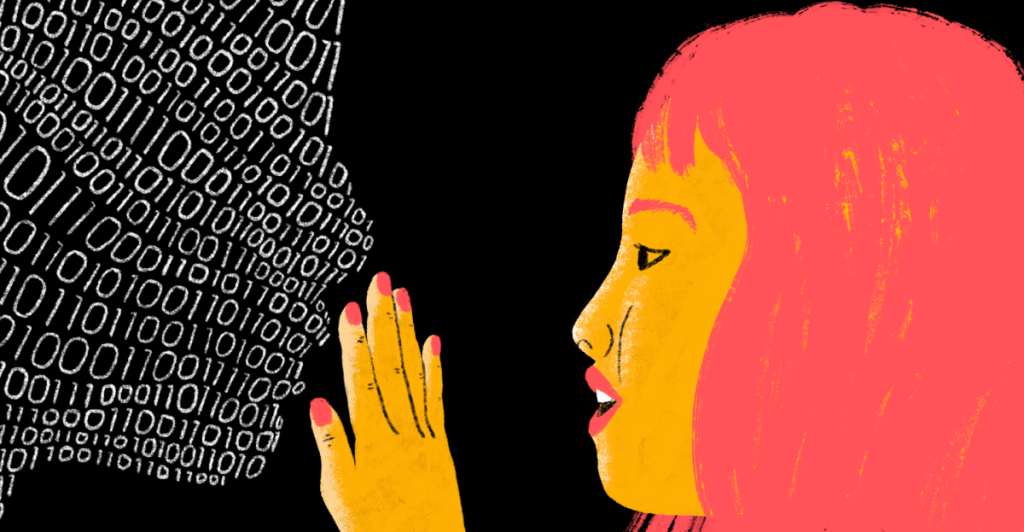That “slight future” is, astonishingly, here. After all, AI-powered chatbots actually are a real thing now, and people are falling in love with them. It’s remarkable that the 2013 Spike Jonze sci-fi romance about a lonely mustachioed man, played by Joaquin Phoenix, talking to a robot in an earbud proved to be so prescient.
Still, much of our AI-dominated future is still taking shape.
AI will certainly shape the culture of the next 25 years, but its biggest transformations to our world still remain to be seen.
Even in its most rudimentary iterations, the technology has caused us to question our grip on reality. One of the first moments that AI broke through as a cultural force was when a fake image of Pope Francis wearing a white puffy Balenciaga coat fooled the entire internet a couple of years ago (if only because it avoided the common AI mistake of six-fingered hands). On the darker end of the spectrum, nonconsensual deepfake porn created using AI has become nearly impossible to keep offline, prompting new legislation to be enacted banning the practice. As people turn to AI for companionship, just like Phoenix’s character did in Her, some of them are losing touch with reality, becoming delusional, and in one case, an AI chatbot has been linked to a teen’s suicide. These developments inevitably seem to signal that a more seismic shift is on the way.
AI will certainly shape the culture of the next 25 years, but its biggest transformations to our world still remain to be seen.
How will all of that play out? Well, that’s the thing about the future: We won’t know until it’s barrelling down on us. In cultural terms, that could mean we’re watching movies that are all at least partially AI-generated, hanging out with AI friends online, and listening to AI-generated music more than human bands.
It would be incorrect to say that the rise of AI is so far inconsequential. At the very least, it’s minted a few billionaires. But to declare it one of the most transformational cultural happenings of this past quarter-century would be a bit premature. After all, it could take years for us to comprehend exactly how the technology has reshaped who we are — if that even proves to be true. Maybe artificially intelligent software will create an entire movie 10 years from now, and we’ll look back at human actors and laugh. Or maybe we’ll keep looking back at Joaquin Phoenix in Her, wondering when we’ll finally stop being lonely.

